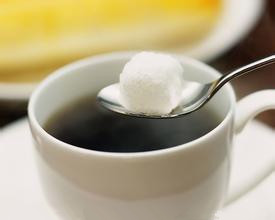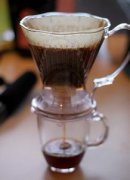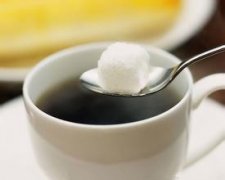Fine Coffee Culture Story Coffee changes the World 2

Have you ever had coffee? Is the coffee really "delicious"?
In fact, when we enjoy coffee, most of the time we just regard it as a drink, a different, unique, refreshing drink, but seldom think about it: what is the big name of a small coffee?
Cha-cha, the name of coffee is amazing--
It is the second largest export product in the world after oil. It has a history of nearly 2000 years since it was recognized and eaten by human beings for the first time. It is closely related to politics, religion, economy, war, medicine, social interaction and environmental protection.
It catalyzed the French Revolution.
It brought enough momentum to the British Industrial Revolution.
It plays a subtle role in the overlap of regimes in Latin American countries.
It made some kind of balancing rod during the Cold War between the United States and the Soviet Union.
It drove away dictators and set off revolutions.
mark? Long live Coffee: how Coffee changes the World (translated by Han Huaizong) is by far the most complete record of the legend of coffee. After it was published in the United States, it immediately attracted high media attention. CNN, ABC and others have interviewed the author for this purpose, and this magazine specially publishes an abstract of the book long live Coffee. After you read it, you may be tempted to ask for a cup of coffee.
Arab world: no coffee, no revolution?
Coffee historian Ukes wrote in his most authoritative book, the Coffee World (All About Coffee): "whenever coffee is introduced, it encourages the revolution." Coffee is the most extreme drink in the world. Caffeine stimulates thinking. Once people think deeply, they want to rebel, endangering the status of tyrants. "
As early as the 16th century, coffee became popular in the Arab world and won the title of "troublemaker". The ruler thought the cafe was a breeding ground for madness. Berg, the young governor of the holy city of Mecca, was furious when he found that satirical poems about him were coming out of the cafe and decided to ban coffee. All the cafes in Mecca were forced to close in 1511. Other rulers and religious leaders of the Arab world have also declared coffee an illegal drink.
The emperors of Constantinople worried that people would make reactionary remarks that would affect morale after drinking two more cups of coffee during the war, so they ordered the closure of cafes in the country. And strict laws and regulations have been issued to restrain the public: anyone who is caught drinking coffee should enjoy the "flesh and blood suffering" brought by a stick; for the second time, sorry, you are finished. Repeat offenders are packed in leather bags, sewn tight, and thrown into the Bosporus.
However, there are still many people who drink coffee at the risk of feeding fish at the bottom of the sea. After all, the ban failed to keep up with the trend and came to an end.
Coffee was a necessity of life for Turks in the 16th century, and it was even explicitly stipulated that if the husband could not meet his wife's need for coffee, the woman could use it as an excuse for divorce.
France: the Catalyst of the Great Revolution
At first, Westerners did not know how to describe this strange drink from Arabia. The English poet Sandez, who traveled in the Middle East in 1610, wrote: "the Turks often drink something called coffee, ha ha all day." This drink is as black as soot and tastes like soot. "
But it wasn't long before Europeans fell madly in love with this soot. The French reduced their consumption of alcohol because of the introduction of coffee. The cafe has even become a place for intellectuals to criticize the current situation. In 1689, Italian immigrant Procob opened the later famous Procobo Cafe directly opposite the famous Francis Theatre in Paris. It is not only the first coffee shop in Paris, but also the most classic coffee shop. A large number of actors, novelists, playwrights and musicians gather here. Voltaire, Rousseau, Franklin and other celebrities have patronized. French historian and philosopher Voltaire often drinks 40 cups of coffee and chocolate here at a time. Danton and Marla, the famous leaders of the French Revolution, often discuss great plans here. Napoleon, who was an artillery officer at that time, once had no money to pay the bill and left his cap as collateral.
This cafe drives the coffee craze in Paris. Many progressive ideas are brewed and formed under the stimulation of coffee. The catalysis of the French Revolution in 1789 was obvious. It is conceivable that the revolutionaries delivered an impassioned speech in front of Cafe'Foy, refreshed themselves with a few cups of coffee (is it similar to Wusong drinking 18 bowls of wine over Jingyanggang) and captured the Bastille in one breath. There is a poem as proof:
Dandong, the awesome Dandong, drink a few cups of coffee before jumping onto the podium, just like a horse always eats food before going to work.
-- Mitchell, a 19th century historian
Britain: injecting momentum into the Industrial Revolution
After 1700, Britain entered the era of industrial revolution. This trend also swept through other European countries and North America after 1800. The development of the factory system has greatly changed the pace of life, attitudes and eating habits of ordinary people. Coffee became part of the diet of the working class, bringing enough momentum to the industrial revolution. Workers began to drink coffee under the condition of poor living conditions and long working hours. They mistook it for a tonic because they were full of energy after drinking it.
A historian wrote: "in order to earn a few more cents, workers constantly operate the weaving machine and have no time to prepare three meals. Coffee and bread become sacred food. At least people feel warm and refreshed after drinking coffee."
Coffee was originally an aristocratic drink, and since then it has become a necessary pick-me-up for the working class, and the beer and thick soup that ordinary people must have for breakfast have also been replaced by coffee.
El Salvador: light the flames of war in the name of coffee
In many countries in Latin America, wars, bloody killings and waves of revolutionary struggles are carried out in the name of coffee. Coffee, for example, accounted for more than 90% of El Salvador's exports in the 1930s, but Indians who bled and sweated in the coffee fields earned only 12 cents a day for 10 hours, making them no different from slaves. On January 22, 1932, Indians in the highland coffee-producing areas of western El Salvador revolted at the call of Communist Party leader Marty. That night, Mount Izako suddenly erupted, seemingly to vent the anger of farmers who had been persecuted for a long time. However, farmers with sticks and iron hoes could not resist the army's bullets and were brutally suppressed by dictator Martinez. In order to protect the safety of coffee field owners and high society, the military went on a killing spree. In just a few weeks, 30,000 people were slaughtered and Marty was also killed. The coffee-related killing is still listed as an important historical event in the country.
Guatemala: power comes out of coffee beans
Ebanz was elected president of Guatemala in 1951 and decided to implement land reform. The authorities handed over more than 100 coffee fields run by foreigners to farmers' cooperatives.
However, this reform has touched the nerves of Americans. The hardest hit is the United Fruit Company, which is invested by Americans and is also in the coffee business. Much of the company's fertile land to be reclaimed as coffee fields has been confiscated by the authorities of the dangerous country. Under such circumstances, US Secretary of State Dulles came forward to fight for justice for the United Fruit Company. His brother Alan? Dulles is not only the director of the Central Intelligence Agency, but also a director of United Fruit. The two men joined forces to vilify the country's "land reform".
Because the United States feared that communism would take root in the American backyard at that time, the powerful Dulles brothers could easily persuade President Eisenhower in August 1953 to approve a "successful action" for the CIA to secretly subvert the Ebanz regime. Ebanz resigned under pressure from the United States, and the new President Armas was "hand-picked" by the United States. After taking office, he immediately abolished the "land reform", banned the activities of political parties, set up the secret police, and disbanded trade unions. The farmers, who were about to acquire arable land under Ebanz's rule, suddenly had nothing.
The United States turned a blind eye to this and pretended that Guatemala was the laboratory of political, social and economic reform in Latin America. Armas was unpopular, assassinated in 1957, and Guatemala was plunged into long-term unrest, all as a result of coffee annoying the Yankees and American intervention.
Important Notice :
前街咖啡 FrontStreet Coffee has moved to new addredd:
FrontStreet Coffee Address: 315,Donghua East Road,GuangZhou
Tel:020 38364473
- Prev

The History and Culture of Coffee beans Coffee changes the World
United States: giving up hundreds of millions of inheritance rights for coffee beans in the 1970s and 1980s, the rulers and generals of Guatemala and El Salvador had huge coffee fields, devouring most of their profits, while farmers had no meals. Many farmers, especially Indians, joined the Communist guerrillas and attacked government forces, and the authorities responded with the Holocaust, aggravating the deep feud between coffee farmers and the government.
- Next

The story of the basic knowledge of coffee culture and the name of coffee.
In a consumer society, the so-called necessities are no longer just to meet basic needs. Like coffee, if you don't drink it, you won't die, but if you don't drink it, you won't be able to turn on electricity for a day. Unwittingly become an addiction everyone has a little addiction, not coffee, but also other. In Hong Kong, not many people can speak French Caf au lait. People are more familiar with foaming latte. Fortunately, it has not been completely localized yet. Here.
Related
- How did the Salvadoran coffee industry develop in Central America?
- What exactly does the golden cup extraction of coffee mean?
- The Origin of Coffee flower
- [2023 Starbucks World Earth Day] there are more meaningful things besides free Starbucks coffee!
- What kind of coffee is there in Spain? 9 Flavors of Spanish Coffee
- Aromatic African coffee| Kenya's coffee culture and historical production area
- Liberica Coffee Bean knowledge: the characteristics of Liberian Coffee beans of the three original species of Coffee beans
- The origin and formula of Spanish latte introduces the taste characteristics of Bombon coffee in Valencia, Spain.
- How to adjust the solution of over-extracted coffee
- What is the tasting period of coffee beans? What is the period of coffee and beans? How should coffee wake up and raise beans?

